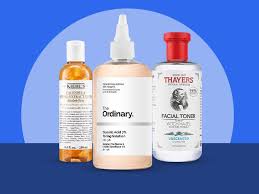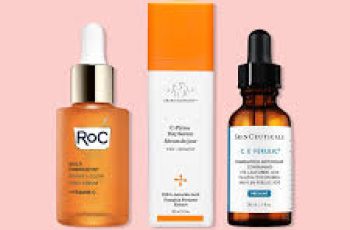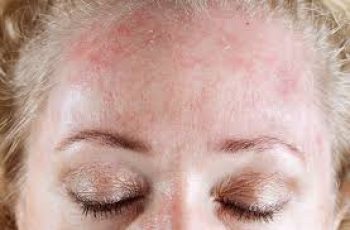
What is the Best Toner For Black Skin?
What is the Best Toner For Black Skin?
The use of a toner, or essence, is an often forgotten yet essential step in any skin care routine.
Using a toner after cleansing can help to remove any leftover residue from your cleanser, as well as balance your skin’s pH level and prepare the skin for the next step in your skin care routine –
allowing products to penetrate deep into the skin and get to work.
Many toners these days also come packed with active ingredients, such as glycolic acid or salicylic acid, and will also gently exfoliate, unclog pores, and improve the appearance of dark spots on the skin or acne.
If you have Fitzpatrick Skin Type 4-6 (i.e. black skin), then read on for some of our top recommendations for a toner depending on your skin type.
The Fitzpatrick Skin type only tells us how your skin reacts to sunlight.
To find the best skin care for skin of color take the Baumann Skin Type Quiz and you will get a personalized skin care routine that is right for your skin type and color.
What is the Best Toner for Black Skin with Dark Spots?
Dark spots on the skin are a common concern in people with black skin and are usually caused by inflammatory pigmentation (e.g. as a result of acne or injury) or lack of sunscreen use.
It is essential to wear an SPF of at least 15 every day if you have black skin to prevent inflammation, hyperpigmentation and uneven skin tone.
Any toner you use to treat dark spots on the skin will work better when combined with a daily sunscreen and a skin care routine designed to even skin color.
Serums are usually more effective on dark spots than toners, but here is our favorite toner used to treat hyperpigmentation:
SkinCeuticals LHA Toner contains three exfoliating ingredients to help unclog pores and remove dead skin cells from the surface of the skin: glycolic acid, salicylic acid and lipo-hydroxy acid.
This toner is particularly beneficial for dark spots on the skin that are caused by acne, as both glycolic acid and salicylic acid are effective in preventing acne and removing acne-causing bacteria from the surface of the skin.
SkinCeuticals LHA Toner also has a lower acid pH level, which means it won’t strip the skin of essential moisture, particularly if it is used in conjunction with a good moisturizer.
What is the Best Toner to Treat Acne in Black Skin?
Acne in black skin often results in post-inflammatory pigmentation, which is more irritating than the acne pimples.
The best way to prevent dark spots from pimples and stop acne in its tracks is to use a skin care product that will prevent the formation of new acne while removing the acne-causing bacteria from the surface of the skin.
Element 47 Fortifying Mist is an incredibly effective acne toner for black skin, primarily because it contains the chemical element silver. Silver makes the skin unattractive to acne-causing bacteria.
Silver is not an antibiotic and it is safe to use on a topically daily basis. (but don’t drink silver! It can turn your skin blue when you drink it.)
Element 47 Fortifying Mist also contains Aloe Barbadensis Leaf Juice, commonly known as Aloe Vera.
Aloe Vera is an incredibly soothing ingredient that will also help to reduce acne-related inflammation and will keep the skin feeling fresh.
What is the Best Toner to Prevent Aging in Black Skin?
While black skin is less likely to be plagued by fine lines and wrinkles with age than lighter skin types, darker skin types experience skin sagging as they age.
This skin sagging is the result of a loss of elastin in the skin.
Elastin is essential connective tissue that helps the skin resume its previous position when it is pulled or poked – in other words, it’s the bounce that younger skin has.
One of the main causes of sagging skin in black skin tones is that darker skin types are less likely to use sunscreen regularly.
Just because your skin doesn’t turn pink or red when you are in the sun doesn’t mean that the sun’s harmful UV rays aren’t having an impact on the integrity of your skin.
In fact- your skin does burn in the sun- you just don’t see it.
The daily damage caused by the sun – particularly if you aren’t wearing a daily SPF – causes sagging skin. However, wearing a sunscreen of at least SPF 15 every day can make a huge difference in the long term.
We recommend using an SPF that contains iron oxides, as this will have the added benefit of protecting the skin from the blue light emitted from electronic devices such as your cell.
In short, to prevent sagging skin and keep black skin looking youthful, radiant and fresh, it is essential to prevent the loss of elastin in the first place.
In addition to a daily SPF, you can use a toner that contains antioxidants to further prevent damage to elastin.
Antioxidants are super skin care ingredients, as they neutralize the free radicals caused by the sun’s UV rays and other environmental stressors, which is one of the primary causes of skin aging and inflammation.
MEDATURE Energizing Q Toner contains the antioxidant Coenzyme Q10, which is highly effective at fighting the signs of aging, such as sagging skin, as it supports the production of collagen –
another substance found in the skin that gives it a youthful bounce. In addition, hyaluronic acid helps the skin to maintain moisture to help plump the cells and keep the skin’s surface smooth.
This means that MEDATURE Energizing Q Toner is also a good toner for those with dry skin types.
Do I need a toner?
Most of the time a toner isn’t essential, and you can treat dark spots on the skin and other skin concerns with a personalized skin care routine that contains serums and moisturizers instead of toners.
Toners are made with water-soluble ingredients, which means they are usually not as concentrated as serums, whereas serums are more effective at treating skin concerns in black skin such as acne, dark spots and sagging.
However, a toner can help those serums to get to work more quickly and effectively by preparing the skin for that next crucial step in your skin care routine.
In order to have even toned, smooth glowing skin, make sure you are using the correct skin care products for your Baumann Skin Type®.


